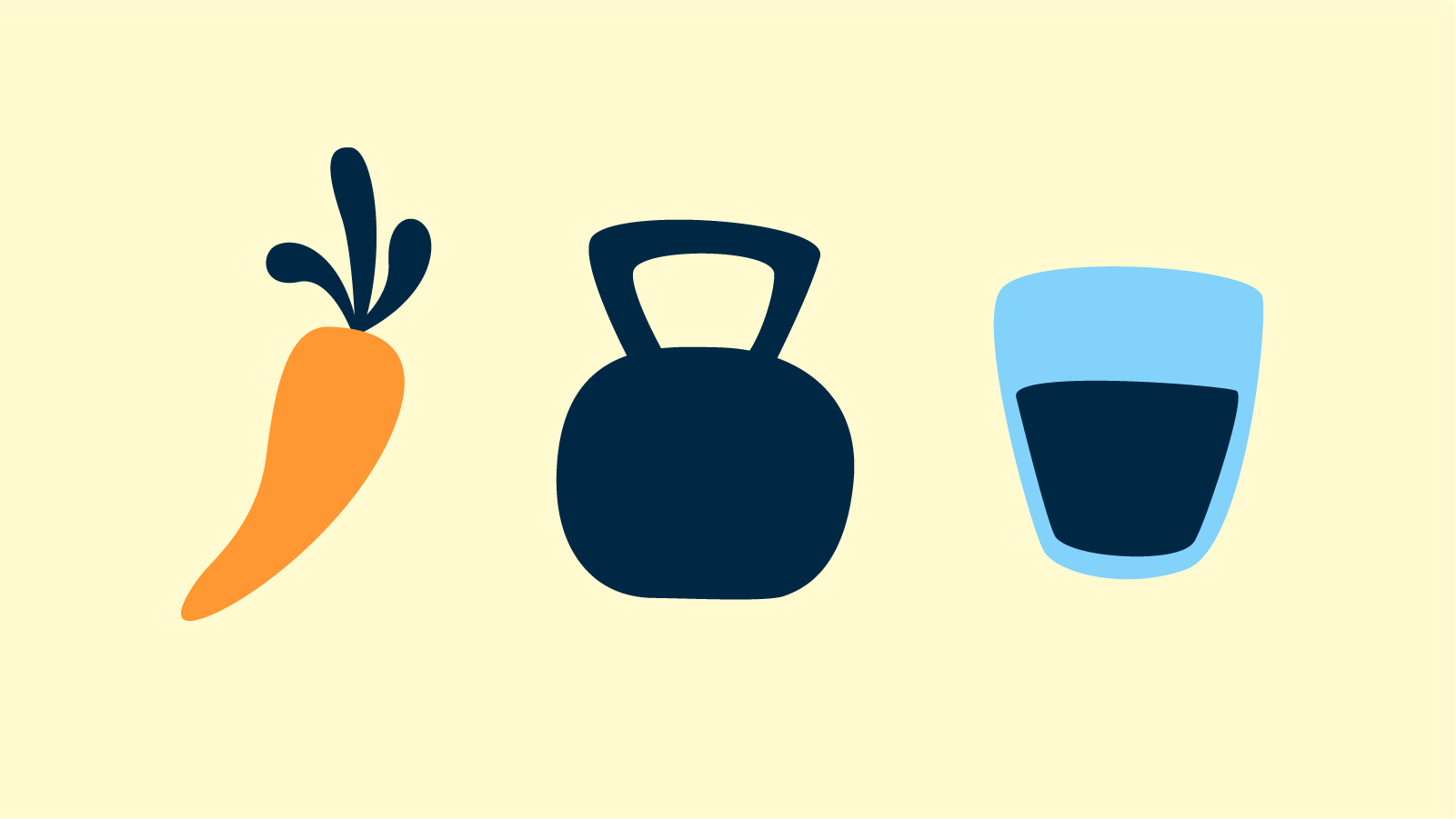Many of us speak about metabolism as if it’s a muscle we can flex and control. There are 25,000 global monthly Google searches for ‘how to speed up metabolism’. When really, metabolism is a series of chemical processes that help to keep your whole body functioning.
While some may have a slower or faster metabolism, this doesn’t affect our weight to a huge degree. But it's useful to understand the difference between a healthy metabolism and one that’s off balance to help spot the signs of a potential metabolic disorder.
Here’s everything you need to know about your metabolism.
What exactly is metabolism and metabolic rate?
You may have heard the terms metabolism, metabolic rate and basal metabolic rate used interchangeably. They all mean slightly different things, so here’s an overview:
Metabolism
Metabolism refers to the chemical processes that happen as your body converts food and drink into energy. The process combines calories with oxygen to release energy. This fuels important processes like:
- Breathing
- Regulating your body temperature
- Digesting food
- Producing pee
- Circulating blood
- Repairing damaged tissues
- Managing hormone levels
Metabolic rate
Metabolic rate is one aspect of the metabolic process – it’s the speed or frequency of your metabolism. The basal metabolic rate (BMR) is the minimum number of calories your body needs to function while resting.
Everyone’s BMR is different, but on average, men need around 2,500 calories and women need around 2,000 calories per day to maintain their weight.
There are 3 main ways your body burns energy every day:
- The basal metabolism – the energy your body uses to function while at rest. This includes energy needed to breath, circulate blood and cell production amongst others
- The energy you use to break down food (also known as the thermic effect)
- The energy you use during physical activity
It’s worth remembering that most of the energy you burn is from your resting metabolism – around 75%.
What affects your metabolic rate?
The function and speed of your metabolism is affected by lots of different things, and it varies from person to person. The key factors include:
- Muscle mass – people with more muscle mass usually have a faster metabolism
- Age – age doesn't affect metabolism on its own but, with age, muscle mass tends to reduce while diet remains the same
- Biological sex – men usually have a faster metabolic rate because they tend to be large than women
- Hormone disorders – an underactive thyroid for example can cause you to have a slower metabolism
- Natural body size and fat composition
- Genetics – scientists are still trying to understand this but we do know that some people are able to develop muscle easier than others
Interestingly, the menstrual cycle also plays a minor role. Research has found that some women have a higher metabolic rate during the last half of their menstrual cycle, when the resting metabolic rate for some women is up to 10% higher.
What’s the difference between a fast and slow metabolism?
People who have a slow metabolism burn fewer calories in a specific time frame than average, while people with a fast metabolism burn more calories in a specific time frame.
What happens when your metabolism is out of balance?
When your metabolism isn’t functioning healthily it can result in some side effects, including:
- Tiredness and fatigue
- Mood swings
- Feeling depressed
- Feeling very hungry
- Irregular heartbeat
- Irregular periods
There are also some key metabolic disorders that mean your body can’t process certain nutrients normally. These are usually inherited and mean that either vital products aren’t made, or toxic by-products build up. They’re not affected by lifestyle changes and so usually require medication.
How does metabolism affect your weight?
Most people think that a sluggish metabolism might be responsible for weight gain, but this is rarely true.
People with a slow metabolism burn fewer calories while resting. This means that more calories can get stored as body fat. People with a fast metabolism burn more calories while resting, so they can usually eat more without putting on weight.
However, having a slow metabolism isn’t usually the cause of excess weight gain. Metabolism actually plays a minor role – by far the bigger factors are diet and exercise.
Is it possible to speed up your metabolism?
‘Speeding up your metabolism’ is a myth. Though there are some lifestyle factors that may speed up your basal metabolic rate just a little, they’re unlikely to make a big difference to your weight.
Food and drinks like coffee and chilli are said to have this effect, but there’s no concrete evidence. Building more muscle through exercises like strength or resistance training. The more muscle on your body and the less fat, the higher your metabolic rate. However, a higher metabolism will also make you want to eat more.
Drinking water is really important. Some studies have even shown that half a litre of water increases metabolism for an hour.
How can I maintain a healthy metabolism?
Although there’s no way to ‘reset’ your metabolism, you can help to minimise imbalances by staying well-hydrated, exercising regularly, eating a healthy well-balanced diet and getting enough sleep – all factors that lead to a healthier life in general.
When should I speak to a doctor about my metabolism?
If you’re concerned about any of the associated symptoms with a fast or slow metabolism above, then speak to a doctor.
If you have unexplained weight loss or a loss of appetite, seek medical help.
This article has been medically reviewed by Dr Bryony Henderson.


